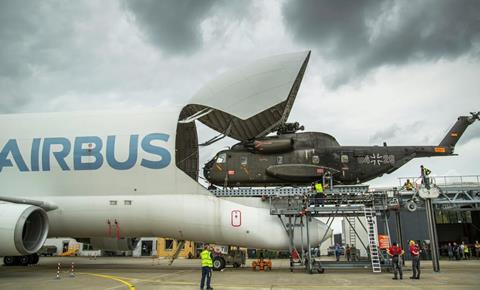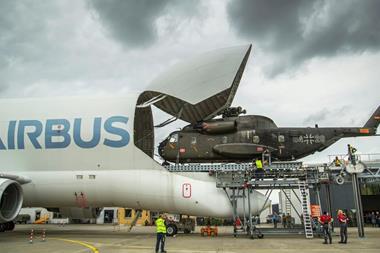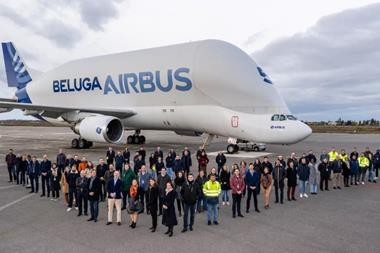
Last month Airbus decided to close its ABT operation just 14 months after gaining its AOC. So what went wrong?
When Airbus began to put its five BelugaST aircraft into action on the commercial market in 2022, the move appeared to make sense – demand was surging as the world recovered from the Covid pandemic and the war in Ukraine had curtailed the availability of Volga-Dnepr’s and Antonov Airline’s AN-124 fleet as well as AirBridgeCargo’s nose loading Boeing 747s.
Meanwhile, the A300-600ST Belugas themselves were no longer needed by Airbus to ferry aircraft parts across the Atlantic as they were being superseded by six larger BelugaXLs based on the A330-700L.
The aircraft initially offered commercial flights through its in-house logistics AOC, Airbus Transport International, but in November 2023 the aircraft started being transferred over to its dedicated commercial operation, Airbus Beluga Transport (ABT).
However, last month Airbus took the decision to close its ABT operation just 14 months after gaining its AOC. So what went wrong?
Speaking to Air Cargo News’ sister title FlightGlobal (FG), the company says: “Overall, the cargo market development is not the reason for [ABT] to close its business, as operational issues were the biggest challenge instead.”
FG says the Beluga has a high main cargo deck, and Airbus had to develop a tailored lifting platform capable of handling outsize loads and which could be transported to the destination.
It adds that the aircraft required “specific” handling procedures and a dedicated, trained crew for loading and unloading.
When it was closed, ABT operated four of the airframer’s five A300-600STs.
The company has not elaborated on the take-up from potential customers, but says it routinely reviews the business performance of affiliates, in order to “address structural losses, propose alternative solutions and take the necessary decision to protect its employees and assets”.
Airbus Beluga Transport has 75 employees. All employees have been informed of the decision and Airbus says it is “committed” to assisting all affected personnel to find alternative roles either within the company or elsewhere.
The company has yet to decide on the medium- and long-term future of the A300-600ST fleet, but the aircraft will initially revert to the air operator’s certificate of Airbus Transport International.
“To what extent Airbus Transport International will be operating the [A300-600ST] is subject to the respective ongoing planning,” says Airbus.
While the airframer is closing its outsize freight airline, it insists broader airfreight market demand remains strong – even though some activity has switched to sea transport – and the company will continue to “play an active role”.
“Airbus’ product portfolio consists of different individual offerings,” says the company, adding that the outsize cargo transport service is “not linked” to its passenger-to-freighter conversion business or the development of the A350 freighter.








